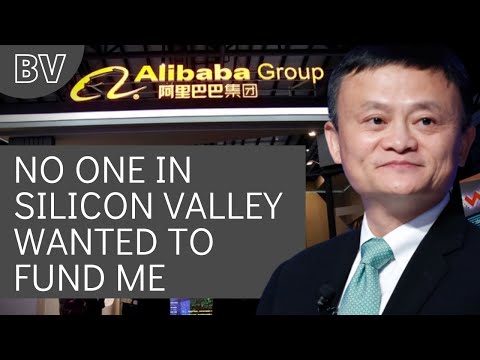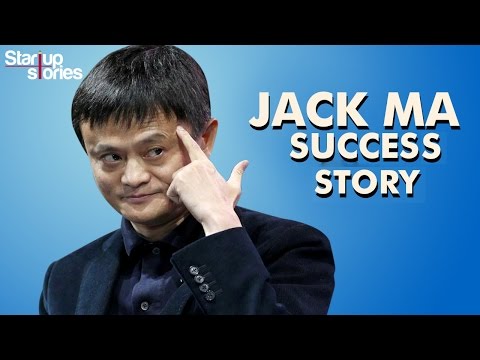How has Jack Ma utilized technology to transform traditional industries?
1. Embracing E-commerce: Jack Ma recognized the potential of the internet early on and revolutionized the traditional retail industry by founding Alibaba Group, one of the world’s largest e-commerce platforms. Through platforms like Alibaba.com, Taobao, and Tmall, he connected manufacturers, wholesalers, and retailers with customers around the globe, eliminating geographical barriers and transforming the way we shop.
2. Enabling Small Businesses: Jack Ma’s vision was not just limited to big corporations; he wanted to empower small businesses as well. Alibaba’s platforms provided an opportunity for small businesses to reach a wider audience, expand their customer base, and compete on a global scale. By leveraging technology, Jack Ma democratized the marketplace, giving equal opportunities to businesses of all sizes.
3. Revolutionizing the Financial Sector: Jack Ma’s innovation didn’t end with e-commerce. He recognized the need for accessible and inclusive financial services, particularly in underserved areas. This led to the creation of Ant Group, which offered services like Alipay, a digital payment platform, and Yu’e Bao, an online investment platform. These initiatives transformed the way people manage their finances and made financial services more inclusive and convenient.
4. Leveraging Big Data: Jack Ma understood the power of data and how it could be harnessed to drive innovation. He utilized Alibaba’s vast user base and transaction data to develop algorithms and predictive models. This enabled personalized recommendations, targeted advertising, and efficient supply chain management, enhancing the overall customer experience and efficiency of traditional industries.
5. Embracing Cloud Computing: Jack Ma recognized the potential of cloud computing early on and founded Alibaba Cloud, a leading cloud service provider. By offering scalable computing power, storage, and data analysis capabilities, he enabled businesses to leverage the power of the cloud without heavy infrastructure investments. This transformed industries by allowing businesses to focus on their core competencies and innovate at a faster pace.
6. Disrupting Logistics: Traditional logistics systems were often slow and inefficient. Jack Ma disrupted this industry by introducing platforms like Cainiao, an intelligent logistics network. By leveraging technology, including artificial intelligence and big data, Cainiao optimized logistics operations, reducing delivery times and costs. This not only benefited e-commerce businesses but also traditional industries that relied on efficient supply chain management.
7. Transforming Education: Jack Ma believed in the power of education to shape the future. He founded the Alibaba Business School, which offers programs to entrepreneurs and small business owners, equipping them with the skills needed to thrive in the digital age. Additionally, he established the Rural Teachers Program, which aimed to improve education in rural areas through technology. These initiatives transformed the education landscape, making quality education more accessible and empowering individuals with the knowledge and skills to succeed in the digital economy.
In conclusion, Jack Ma’s visionary approach and utilization of technology have transformed traditional industries in numerous ways.
The Remarkable Legacy of Jack Ma: Unraveling the Global Impact of Alibaba’s Visionary Leader
1. Introduction: The Rise of Jack Ma and Alibaba
– Jack Ma, the visionary leader and founder of Alibaba, has left a remarkable legacy in the business world.
– Alibaba, a Chinese multinational conglomerate specializing in e-commerce, technology, and artificial intelligence, has revolutionized traditional industries under Jack Ma’s leadership.
2. Disrupting Traditional Industries through Technology
– Jack Ma utilized technology to transform traditional industries by leveraging the power of e-commerce and digital platforms.
– Through Alibaba’s flagship platform, Taobao, Ma introduced a new way of shopping, challenging the dominance of brick-and-mortar stores.
– By connecting buyers and sellers online, Alibaba disrupted the retail industry, enabling small businesses to reach a global audience and thrive in the digital era.
3. Redefining Finance with Alipay
– Jack Ma’s vision extended beyond e-commerce. He aimed to transform the financial industry through Alipay, Alibaba’s digital payment platform.
– Alipay revolutionized the way people make payments, providing a secure and convenient alternative to cash transactions.
– With its innovative features like facial recognition and mobile payments, Alipay has become a dominant force in the digital finance landscape, challenging traditional banking systems.
4. Empowering Small Businesses and Entrepreneurs
– One of Jack Ma’s key goals was to empower small businesses and entrepreneurs, especially in China.
– Alibaba’s platforms, such as Taobao and Tmall, provided a level playing field for small businesses to compete with established brands.
– Through Alibaba’s ecosystem, entrepreneurs gained access to a wide range of tools and resources, including marketing support, logistics services, and data analytics, enabling them to scale their businesses and reach global markets.
5. Global Expansion and Cross-Border Trade
– Under Jack Ma’s leadership, Alibaba expanded its reach beyond China, becoming a global player in e-commerce and technology.
– Through platforms like AliExpress and Tmall Global, Alibaba facilitated cross-border trade, connecting Chinese manufacturers with international consumers.
– This globalization strategy not only boosted Alibaba’s growth but also had a significant impact on the global economy, fostering trade and cultural exchange between nations.
6. Fostering Innovation and Entrepreneurship
– Jack Ma’s entrepreneurial spirit and commitment to innovation have fostered a culture of creativity within Alibaba.
– The company invests heavily in research and development, exploring emerging technologies like artificial intelligence, cloud computing, and big data analytics.
– Ma’s vision of a technologically advanced future has inspired countless entrepreneurs and startups, driving innovation across various industries.
7. Conclusion: Jack Ma’s Enduring Legacy
– Jack Ma’s utilization of technology to transform traditional industries has had a profound global impact.
– Through Alibaba, he has disrupted retail, finance, and cross-border trade, empowering small businesses and fostering innovation.
– Jack Ma’s visionary leadership and commitment to empowering others will continue to shape the business world for years to come.
The Alibaba Effect: Revolutionizing Global Trade and Redefining E-commerce Landscape
The Alibaba Effect: Revolutionizing Global Trade and Redefining E-commerce Landscape
1. Jack Ma’s vision and leadership: Jack Ma, the founder of Alibaba, has utilized technology to transform traditional industries by envisioning a future where digital platforms connect buyers and sellers globally. His leadership and innovative approach have been instrumental in revolutionizing global trade and redefining the e-commerce landscape.
2. Disrupting traditional supply chain models: Through the use of technology, Alibaba has disrupted traditional supply chain models by introducing a more efficient and streamlined process. By leveraging data analytics, artificial intelligence, and cloud computing, Alibaba has enabled businesses to connect directly with suppliers, eliminating middlemen and reducing costs. This has led to increased transparency, faster delivery times, and improved customer satisfaction.
3. Creating a global marketplace: Alibaba’s online platforms, such as Alibaba.com and AliExpress, have created a global marketplace where businesses of all sizes can connect and trade with each other. This has opened up new opportunities for small and medium-sized enterprises (SMEs) to access global markets and compete on a level playing field with larger companies. Through these platforms, Jack Ma has democratized international trade and empowered entrepreneurs worldwide.
4. Digital transformation of traditional industries: Jack Ma’s vision of utilizing technology to transform traditional industries has been realized through Alibaba’s expansion into sectors such as finance, logistics, entertainment, and healthcare. For example, Alipay, Alibaba’s digital payment platform, has revolutionized the financial industry in China by providing a convenient and secure way for individuals and businesses to make transactions. Similarly, Alibaba’s logistics arm, Cainiao, has introduced innovative solutions to improve the efficiency and reliability of global shipping.
5. Fostering innovation and entrepreneurship: Jack Ma has fostered a culture of innovation and entrepreneurship within Alibaba, encouraging employees and partners to think outside the box and embrace new technologies. This has resulted in the development of groundbreaking initiatives such as the Alibaba Cloud, which provides cloud computing services to businesses worldwide, and the Singles’ Day shopping festival, which has become the largest online shopping event globally. Jack Ma’s emphasis on innovation has not only transformed Alibaba but has also inspired countless entrepreneurs to pursue their dreams and disrupt traditional industries.
In conclusion, Jack Ma’s utilization of technology has had a profound impact on traditional industries, revolutionizing global trade and redefining the e-commerce landscape. Through his vision, leadership, and innovative approach, Alibaba has disrupted supply chain models, created a global marketplace, digitally transformed traditional industries, and fostered innovation and entrepreneurship. The Alibaba Effect continues to shape the future of commerce, empowering businesses and individuals worldwide.
Revolutionizing Retail: Unveiling Alibaba’s Game-Changing Business Model and its Profound Impact on the Industry
Revolutionizing Retail: Unveiling Alibaba’s Game-Changing Business Model and its Profound Impact on the Industry
1. How has Jack Ma utilized technology to transform traditional industries?
– Jack Ma, the visionary founder of Alibaba, has leveraged technology to revolutionize traditional industries. By embracing innovative solutions and digital platforms, Ma has disrupted the retail sector and transformed the way businesses operate.
– Through the development of e-commerce platforms like Taobao and Tmall, Ma has created a seamless online shopping experience for consumers, eliminating the need for physical stores and traditional retail models. This shift has allowed businesses to reach a wider audience and expand their market presence.
2. The power of data-driven insights:
– One of the key elements of Alibaba’s game-changing business model is its utilization of big data and analytics. By collecting and analyzing vast amounts of consumer data, Alibaba is able to gain valuable insights into consumer behavior, preferences, and trends. This data-driven approach enables businesses to make informed decisions, optimize their marketing strategies, and tailor their offerings to meet customer demands.
– Through its ecosystem of platforms and services, Alibaba offers businesses access to an extensive range of data tools and services. This includes customer segmentation, personalized recommendations, targeted advertising, and logistics optimization. Such data-driven insights empower businesses to enhance their operations, improve customer satisfaction, and drive revenue growth.
3. Enabling small businesses to thrive:
– Another significant aspect of Alibaba’s business model is its focus on empowering small and medium-sized enterprises (SMEs). Through platforms like Alibaba.com, the company provides a global marketplace for SMEs to connect with suppliers, manufacturers, and buyers from around the world. This has leveled the playing field for smaller businesses, allowing them to access global markets and compete on a larger scale.
– Additionally, Alibaba offers a range of support services for SMEs, including financing solutions, digital marketing tools, and training programs. These resources enable small businesses to overcome traditional barriers to entry and succeed in the digital economy.
4. Seamless integration of online and offline retail:
– Alibaba’s business model also encompasses the integration of online and offline retail channels. Through initiatives like New Retail, Alibaba has pioneered the concept of merging the physical and digital shopping experiences. This integration enables consumers to enjoy the convenience of online shopping while still having the option to visit physical stores.
– By leveraging technologies such as artificial intelligence, augmented reality, and mobile payment systems, Alibaba has created a seamless omnichannel experience for consumers. This not only enhances customer satisfaction but also provides businesses with valuable data insights and opportunities for targeted marketing.
5. Impact on the retail industry:
– Alibaba’s game-changing business model has had a profound impact on the retail industry. It has disrupted traditional retail models, challenged established players, and reshaped consumer behavior. The company’s success has inspired other businesses to embrace digital transformation and adopt innovative strategies to stay competitive.
In conclusion, Jack Ma has undeniably utilized technology to transform traditional industries in remarkable ways. Through his vision and leadership, he has revolutionized e-commerce with the creation of Alibaba, enabling millions of businesses to thrive in the digital age. Additionally, his innovative approach has extended beyond just online retail, as he has also ventured into sectors such as finance, logistics, and entertainment. By leveraging technology, Ma has effectively streamlined and optimized processes, making them more efficient and accessible for both businesses and consumers.
**But how has Jack Ma managed to navigate the challenges of transforming traditional industries?** One key factor has been his ability to identify gaps and pain points within these sectors and then develop solutions that address these issues. Whether it’s providing small businesses with a platform to reach a global audience or offering financial services to those who were previously underserved, Ma has consistently demonstrated a deep understanding of market needs.
**What impact has Jack Ma’s technological innovations had on traditional industries?** The impact has been significant. Through platforms such as Taobao and Tmall, small businesses have been able to expand their reach and compete with larger corporations. This has not only driven economic growth but has also fostered a sense of entrepreneurship and innovation within these industries. Furthermore, Ma’s initiatives in finance, such as Alipay, have democratized access to financial services, empowering individuals who were previously excluded from the traditional banking system.
**Will Jack Ma’s technological advancements continue to shape traditional industries in the future?** It is highly likely. As technology continues to evolve and new opportunities arise, Ma’s entrepreneurial spirit and commitment to innovation will undoubtedly drive further transformation. With his ongoing initiatives in areas such as artificial intelligence and cloud computing, it is clear that he remains at the forefront of technological advancements. As a result, traditional industries can expect to see further disruptions and advancements in the coming years.
In summary, Jack Ma’s utilization of technology has revolutionized traditional industries, creating new opportunities and empowering businesses and individuals alike. Through his vision and innovative approach, he has transformed e-commerce, finance, logistics, and entertainment, optimizing processes and bridging gaps within these sectors. His impact has been significant, driving economic growth, fostering entrepreneurship, and democratizing access to services. As technology continues to evolve, it is certain that Ma’s advancements will continue to shape and redefine traditional industries in the future.





Jack Mas so-called technological revolution is just a fancy facade hiding exploitative labor practices.
Jack Mas technological advancements are overrated. Traditional industries still struggle to adapt.
Jack Mas technology revolution is overrated. Traditional industries dont need his meddling!